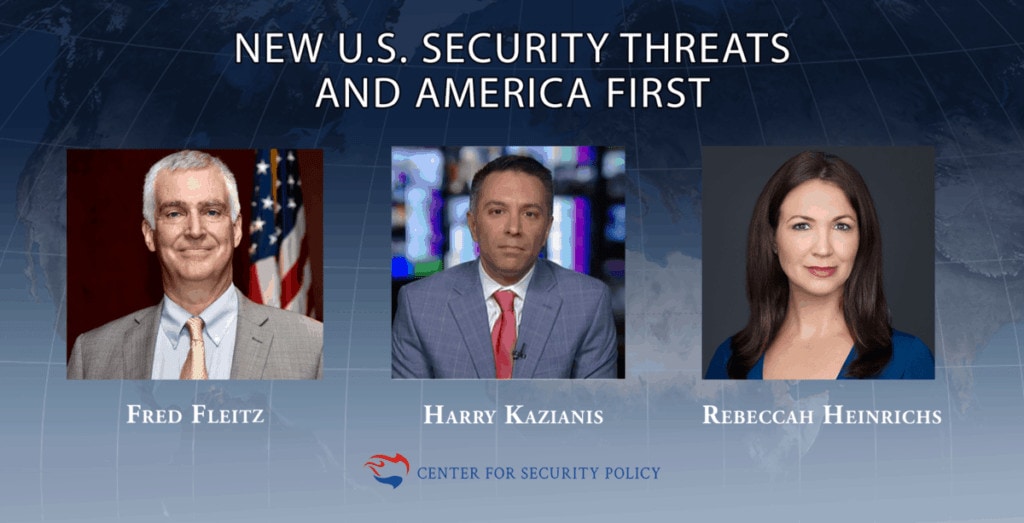WEBINAR: New U.S. Security Threats and America First

In this latest Center for Security Policy voter education webinar, Center President Fred Fleitz moderated a wide ranging discussion of how the two major presidential candidates would handle a variety of crucial national security issues with two leading national security experts: Rebeccah Heinrichs, Senior Fellow with the Hudson Institute, and Harry Kazianis, Senior Director of Korean Studies at the Center for the National Interest. The purpose of this webinar series is to educate American voters on crucial national security issues they should consider when casting their ballots this fall. The expert commentary in this webinar by Heinrichs and Kazianis should prove extremely useful in helping Americans understand how each presidential would conduct U.S. foreign policy if elected.
The panel started with Heinrichs and Kazianis contrasting President Trump’s unconventional America First approach to foreign policy with former Vice President Biden’s support of traditional foreign policy. Heinrichs explained that America First is an approach that makes American interests a priority in national security policies and decisions instead of deferring to the interests of other countries and the UN which often promote positions that are not in America’s interests. Kazianis noted the key element of America First – to stop endless wars and not start unnecessary ones — is an important and popular aspect of this approach. Both panelists worried about a Biden administration returning to the failed policies of the Obama administration when the U.S. failed to act to protect its interests and deferred too often to the UN and Europe.
Both panels praised the Middle East achievements of the Trump administration, including withdrawing from the nuclear deal with Iran, the recent peace agreement with Israel, and destroying the ISIS caliphate in Syria and Iraq. They believe a Biden administration Middle East policy would be much weaker, especially if it rejoined the Iran nuclear deal.
Harry Kazianis spoke at length about President Trump’s personal diplomacy with North Korea which he regards as successful as it could have been. Kazianis gave the president credit for doing all that was possible to improve relations with North Korea and lower tensions, but conceded that the North continues to develop its nuclear and missile programs. Kazianis does not believe anything can stop these programs because most North Korean trade goes through China. Heinrichs agreed, but was more positive about the pause in North Korea’s missile and nuclear programs due to Trump’s North Korea policy. Both panelists were pessimistic about a Biden administration North Korea policy and believed Trump’s achievements would melt away since Biden probably would drop sanctions on North Korea. Kazianis does not believe Biden’s preference to press North Korea with working-level talks could succeed.
On China, both panelists praised President Trump’s achievements pressing for free and fair trade from Beijing and calling out the Chinese Communist Party as a threat to global security. They did not believe Biden had stated a clear policy on China and held that he would cede significant leverage to China by dropping tariffs.
- The Iran nuclear negotiations: Why the humpty dumpty JCPOA should not be renewed - December 7, 2021
- Time to end diplomacy with Iran and admit Trump was right - December 3, 2021
- The US should walk out of the Iran nuclear talks - November 30, 2021
